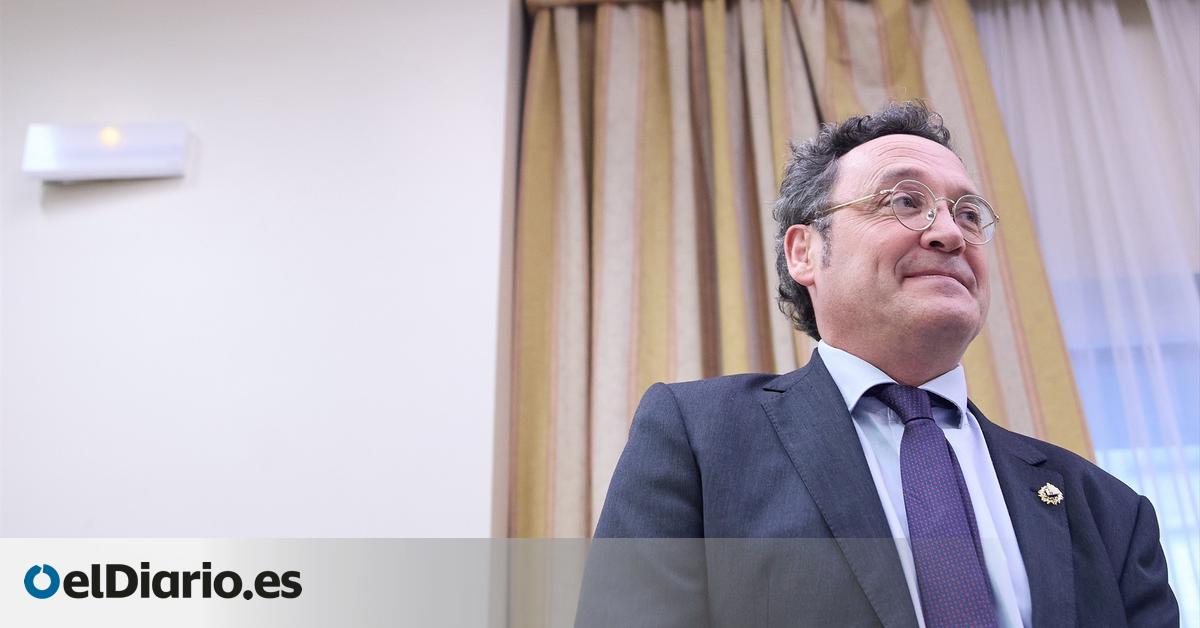
The High Court of Madrid has asked the Supreme Court to indict the Attorney General of the State for the complaint filed by Alberto González Amador, Isabel Díaz Ayuso’s partner. The judge believes that there could have been a crime of revealing secrets in the statement with which the Prosecutor’s Office sought to deny several hoaxes about the judicial process for double tax fraud against the businessman. “We are faced with the situation that the full prosecution of the present proceedings would, in our opinion, make it necessary to compare them with the version of the facts that the Attorney General of the State could give,” says the Madrid court about Álvaro García Ortiz, whose case is already in the hands of the Supreme Court.
In a statement, the Attorney General defended the announcement, insisting that the note was issued to “put an end to a hoax and protect a colleague.” He also explained that he will not resign from his post: “The fact that this reasoned statement has been submitted should not prevent or alter the normal functioning of the institution or, of course, the ordinary work of the Attorney General.”
Isabel Díaz Ayuso’s partner decided to file a complaint against the prosecutor who reported him and against his superior for revealing secrets. He did so after the Madrid Prosecutor’s Office issued a statement about the contacts with González Amador’s lawyer to seek an agreement. A statement that, according to the Public Prosecutor’s Office, was intended to refute some false information issued by both the media and by Miguel Ángel Rodríguez himself, Ayuso’s right-hand man, about the offer in which González Amador’s lawyer offered to accept eight months in prison.
In the decisions announced this Monday, the Madrid High Court has closed the case against prosecutor Julián Salto, who accused Alberto González Amador of tax fraud. “His actions in relation to the preparation of the Information Note of the Provincial Prosecutor’s Office of Madrid were merely instrumental,” the court acknowledges. But it understands that the Supreme Court must decide whether Álvaro García Ortiz has to testify. “The preparation, publication and dissemination of the aforementioned Note exceeded the scope of decision of the Provincial Prosecutor’s Office of Madrid,” the TSJM reproaches. And the note was “even urged by the Attorney General’s Office,” it concludes.
According to the judge, this note meant “the disclosure of data and information that cannot be revealed to third parties, as it could harm a third party and even a collective interest.” The note, says the judge, “could have had another format and content, which would not have violated the duty of confidentiality that must be maintained.” Prosecutor Salto should not be held criminally responsible for the statement, although the TSJM understands that his superior, Pilar Rodríguez, should also be investigated.
Regarding García Ortiz, the judge who investigated the case highlights not only the statements of the witnesses but also the document that the Attorney General himself sent, taking responsibility for the press release. Going ahead with the case, says the magistrate, “would require comparing it with the version of these events that the Attorney General of the State could give,” a statement that could not be made in the TSJM as an accused due to his immunity. Going ahead with the case without declaring him under investigation, he adds, “could leave him defenseless.”
The prosecutor Salto should not remain under investigation, the judge adds, because “he simply limited himself to forwarding the data and emails on the matter to his superior”, following an order. Pilar Rodríguez, the provincial prosecutor of Madrid, should remain under investigation: “A similar conduct of mere passivity and giving of account cannot be claimed”, he explains. “Her actions, in principle, go beyond that”. The judge even adds that this prosecutor “did not tell the whole truth” in her statement as an investigated person.
A hoax by Miguel Angel Rodriguez
Both El Mundo and Miguel Ángel Rodríguez reported that it was the Public Prosecutor’s Office that had contacted González Amador to offer him a deal: a prison sentence that would not entail his being sentenced to jail in exchange for admitting his two tax crimes and paying his debts to the tax authorities. Rodríguez added on his social networks and messages that, in addition, this possible deal had been paralysed by the top brass of the Public Prosecutor’s Office. The reality was the opposite: the businessman’s lawyer had offered a deal to avoid jail in exchange for admitting his double tax fraud of more than 350,000 euros, revealed by elDiario.es, and paying his debts to the Treasury.
The investigation was placed in the hands of the High Court of Justice of Madrid and the magistrate Francisco José Goyena due to the immunity of the chief prosecutor. Throughout the case, in which the Madrid Bar Association (ICAM) is the prosecutor, the general prosecutor himself has written to the instructor to inform him that the statement was issued by his order. The judge decided to ignore the letter and took a statement from Almudena Lastra, the chief prosecutor of Madrid, who confirmed the origin of the statement.
Now it will be the Criminal Chamber presided over by Manuel Marchena that decides whether or not to accept the reasoned statement of the TSJM and open a case against the only person with immunity before the Supreme Court: the Attorney General of the State, Álvaro García Ortiz. Throughout the case, the Public Prosecutor’s Office has stated in several appeals and writings that the statement did not disseminate any information that the media or Ayuso’s own entourage had not already disseminated, and that it also did not negatively affect her right to defence.
Alberto González’s double tax fraud
In parallel, a Madrid court is still investigating Alberto González Amador for defrauding more than 350,000 euros between 2020 and 2021 through a network of false invoices. The businessman earned several million euros during the pandemic working as a commission agent in the purchase and sale of medical supplies and, as he himself has admitted, decided to pay less to the Treasury for corporate tax by creating fictitious expenses with false invoices.
The investigation of his case was slowed down after the judge decided to delay his appearance as well as that of other suspects. On the day of his statement, González Amador avoided the cameras in the courts of Plaza de Castilla by changing his appearance, shaving his hair and also wearing a wig.
Source: www.eldiario.es

